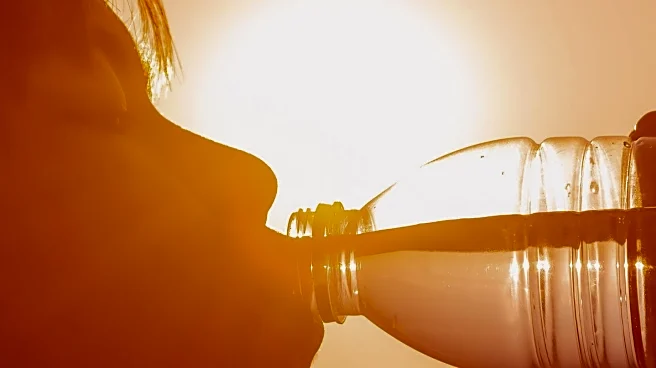What's Happening?
A recent study published in SN Comprehensive Clinical Medicine has found a correlation between hydration levels and sleep quality. Participants who were dehydrated reported sleeping longer but had difficulty falling asleep compared to when they were well-hydrated. The study involved 18 college-aged males who followed a controlled hydration pattern over four days. Researchers measured hydration status through urine tests and body mass loss. The findings suggest that mild dehydration can increase fatigue before sleep and affect sleep dynamics, emphasizing the importance of adequate fluid intake for overall health.
Why It's Important?
The study underscores the critical role of hydration in maintaining sleep quality, which is essential for overall health and well-being. As sleep deprivation becomes increasingly common due to lifestyle demands, understanding factors that influence sleep can lead to better health outcomes. This research may encourage individuals to prioritize hydration as part of their daily routine, potentially improving productivity and reducing health issues related to poor sleep. It also opens avenues for further research into the physiological effects of hydration on sleep and other bodily functions.









